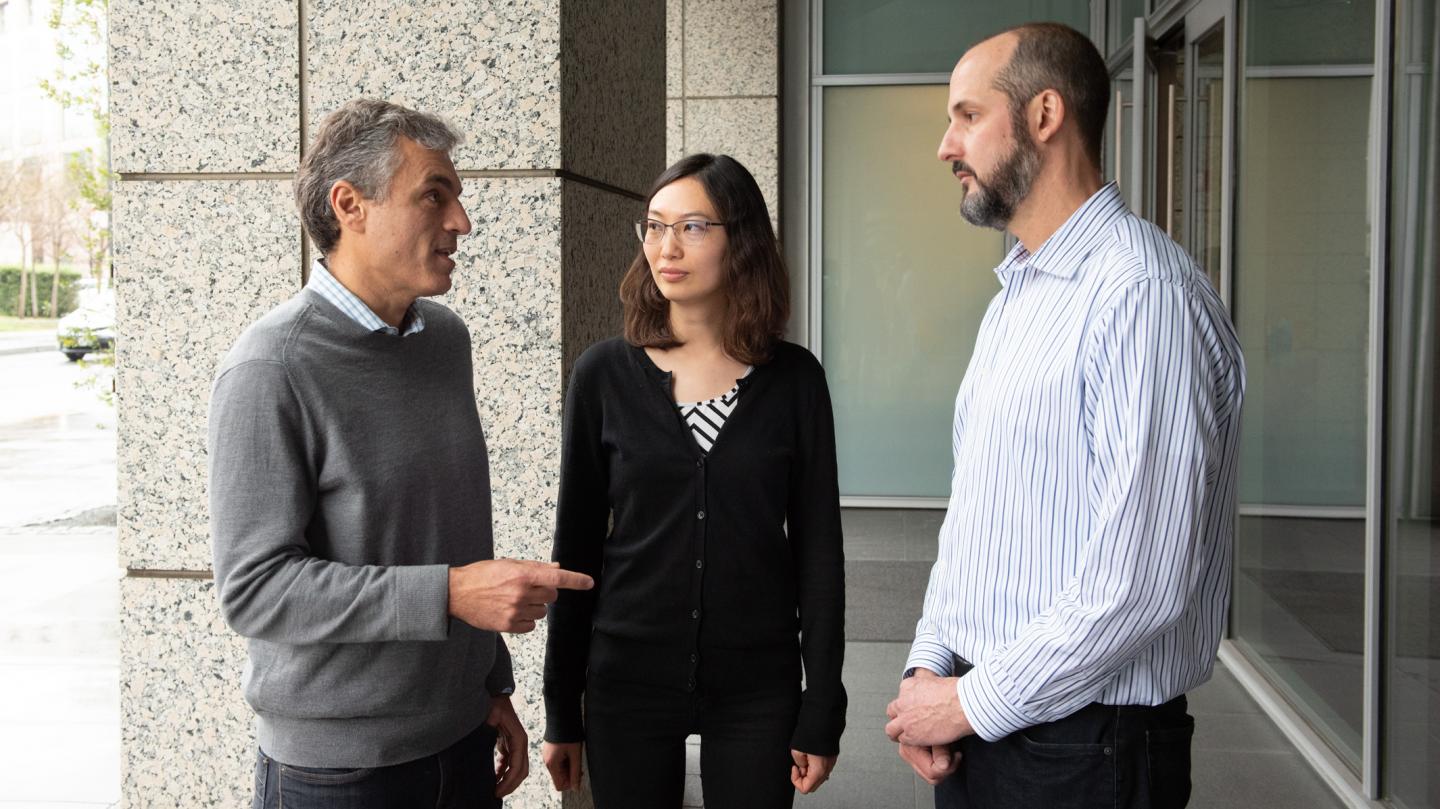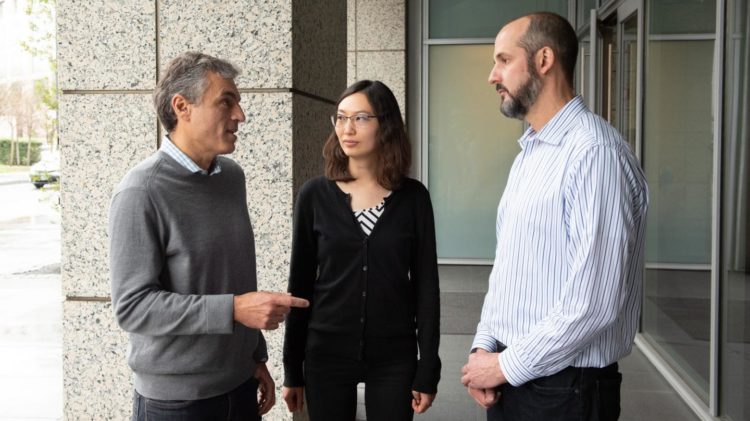New study shows potentiating a subset of NMDA receptors may be beneficial in Alzheimer’s disease and Dravet syndrome.

Credit: Lauren Bayless, Gladstone Institutes
SAN FRANCISCO, CA January 14, 2020–Gladstone researchers, in collaboration with Genentech, a member of the Roche group, have shown therapeutic efficacy of a new experimental drug in mouse models of Alzheimer’s disease and a rare genetic form of epilepsy known as Dravet syndrome. The small molecule increases the activity of a subset of neurotransmitter (NMDA) receptors that are found at synapses, the connection points between neurons. These receptors are known to support cognition and memory by enhancing communication between neurons. The new research shows that enhancing the activity of synaptic NMDA receptors helps restore the brain’s rhythms to normal patterns, and improves memory.
“Before now, we haven’t had ideal tools to enhance synaptic NMDA receptors,” said Gladstone Associate Investigator Jorge Palop, PhD, senior author of the study, which was published in the journal Cell Reports. “Now, the ability to specifically target these receptors opens up a lot of new possibilities for treating cognitive disorders.”
“This is the first time we’ve explored what this type of experimental drug does in animal models,” said Jesse Hanson, a scientist at Genentech and lead author of the new paper. “It was very gratifying to see an effect on both the brain’s electrical activity and the animals’ behavior.”
Abnormal activity of NMDA receptors has been long implicated in neuropsychiatric, epileptic, and neurodegenerative disorders. But previous compounds for altering NMDA receptor function worked by binding to all subtypes of NMDA receptors, and either completely blocked the receptors or put them in a permanently active state. Researchers have theorized that modulating the receptors only at active synapses may help diverse cognitive diseases by potentiating synaptic function and increasing neuronal communication.
In 2016, Genentech researchers first reported the development of a new class of experimental drugs that selectively bound to one subtype of NMDA receptors–those found only at the synapses. The new drug was also unique, because rather than directly activating the receptors, it amplified the receptors’ signals primarily when engaged by neurotransmitters, the chemicals neurons use to communicate with each other.
“These compounds enhance naturally occurring activity at the synapses, rather than turning the receptors on all the time,” said Keran Ma, a staff scientist at Gladstone and a co-first author of the paper. “Thus, active synapses are potentiated in a more physiologically relevant way.”
Gladstone and Genentech researchers teamed up to test the effect of one of the new experimental drugs, GNE-0723, on mouse models of Alzheimer’s disease and Dravet syndrome. In the new paper, they report that GNE-0723 reduced a type of brain activity called low-frequency oscillations. These oscillations occur naturally even in healthy people, but are more prominent in Alzheimer’s disease and Dravet syndrome, and can be associated with epileptic brain activity, which can contribute to impaired cognition and memory loss. When the researchers treated mice simulating Alzheimer’s disease or Dravet syndrome with GNE-0723, low-frequency oscillations returned to levels seen in healthy control mice, and epileptic activity ceased.
“What we saw after the treatment were brain-wide changes in neural activity that shift the brain to a more active state that facilitates learning and memory,” said Palop, who is also an associate professor of neurology at UC San Francisco.
Indeed, after diseased mice were treated with the experimental drug for several weeks, they performed better in learning and memory tests than untreated animals–they both learned faster and retained memories longer.
Two different types of brain cells–interneurons and excitatory cells–have NMDA receptors, and future studies will address which cell type is responsible for the beneficial effects of GNE-0723.
At Genentech, Hanson also explained that more research is needed to understand how this class of experimental drugs affects brain function. “For now, we’re focused on using GNE-0723 as a research tool to learn what happens when you enhance NMDA receptors,” Hanson said. “This is a powerful tool to understand both basic biology and disease mechanisms.”
###
About the Research Project
The paper, “GluN2A NMDA receptor enhancement improves brain oscillations, synchrony, and cognitive deficits in Dravet syndrome and Alzheimer’s disease models” will be published by the journal Cell Reports on January 14, 2020.
Other authors include: Sandrine Saillet, Abdullah Khan, Jeffrey Simms, Benjamin Liu, Thomas Kim, Gui-Qiu Yu, and T. Michael Gill of Gladstone; and Justin Elstrott, Martin Weber, Yelin Chen, Tzu-Ming Wang, Zhiyu Jiang, Bianca Liederer, Gauri Deshmukh, Hilda Solanoy, Connie Chan, Benjamin Sellers, Matthew Volgraf, Jacob Schwarz, David Hackos, Robby M Weimer, Morgan Sheng, and Kimberly Scearce-Levie of Genentech.
The work at Gladstone was supported by Genentech and the National Institutes of Health.
About the Gladstone Institutes
To ensure our work does the greatest good, Gladstone Institutes focuses on conditions with profound medical, economic, and social impact–unsolved diseases. Gladstone is an independent, nonprofit life science research organization that uses visionary science and technology to overcome disease. It has an academic affiliation with the University of California, San Francisco.
Media Contact
Megan McDevitt
[email protected]
415-735-2019
Original Source
https:/
Related Journal Article
http://dx.





